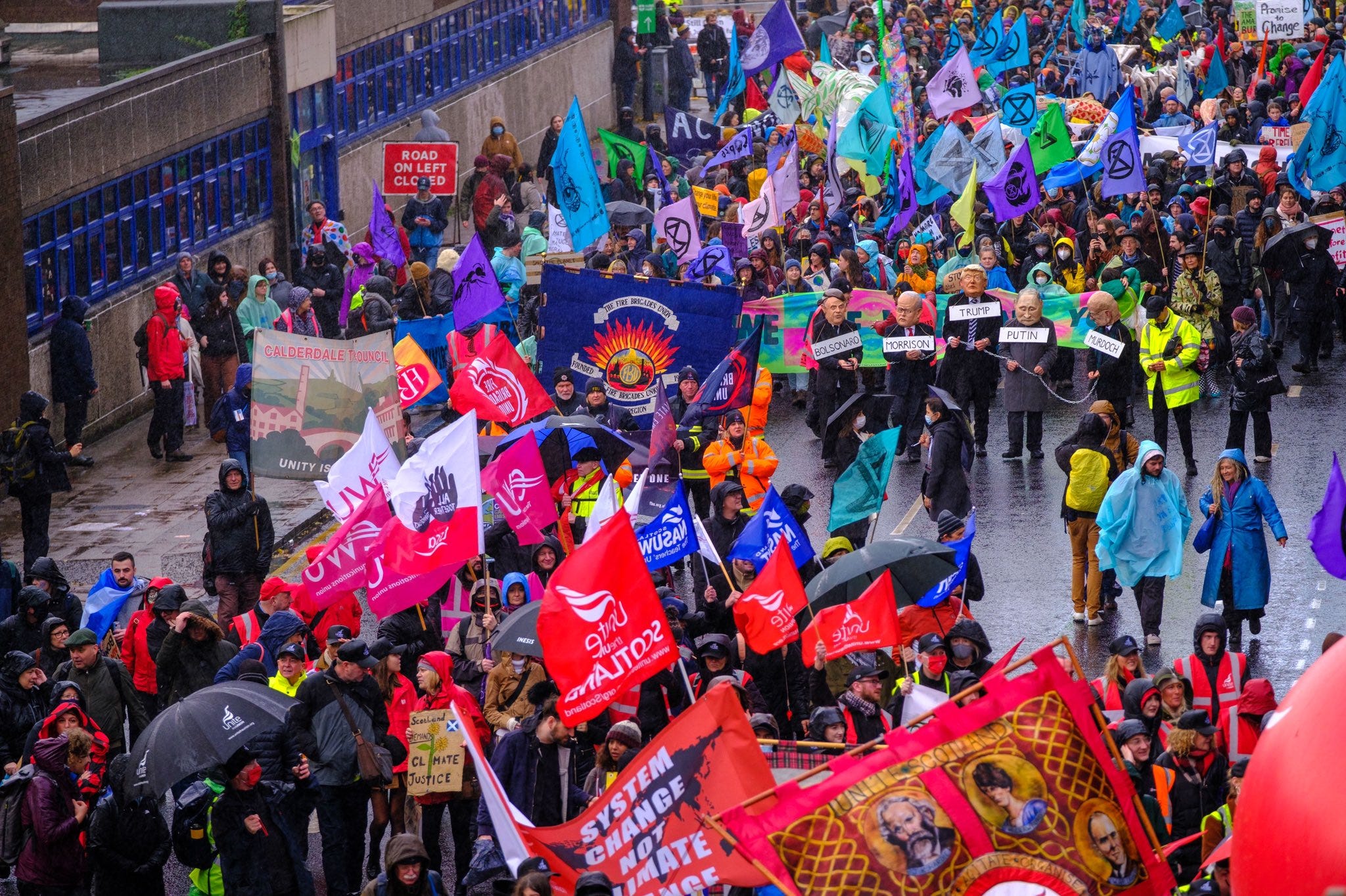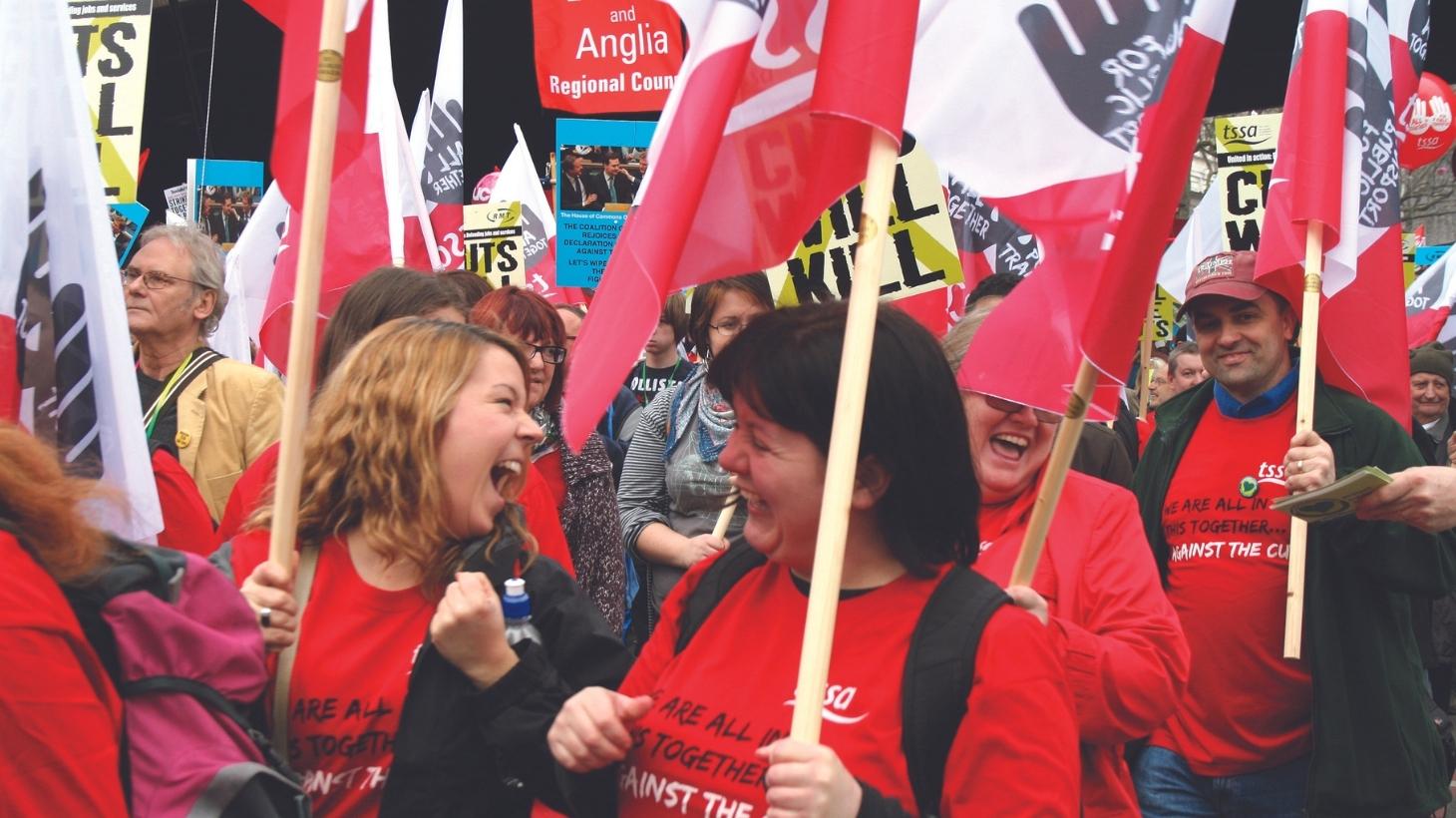COP26 blog

It’s wet in Glasgow. It’s as if the weather is reflecting the mood of citizens across the world as political leaders fail to grasp the opportunity of COP26 to truly tackle climate change.
The rain lashed us as we demonstrated in record numbers from Kelvingrove Park on Saturday. The air was filled with anger and solidarity, soggy home-made signs and running face paint. The weather always wins – one of the great lessons of climate change itself - but our spirit is not extinguished yet.
For our union – as for so many – COP26 presents a huge opportunity to preserve and promote clean jobs, decarbonisation of our economy and a true commitment to Just Transition and climate solidarity. The rain that lashed us on Saturday was behind the Stonehaven tragedy when a landslip caused a fatal train crash in Scotland last year. And climate change will bring yet more of this tempestuous weather to our shores.
Today (Wednesday) is transport day. Transport is both friend and foe here: a contributor to climate change through carbon and other greenhouse gas emissions, but in the form of clean, public transport, it can be part of the solution.
That’s why it’s so disappointing that public transport isn’t front and centre in the climate debate. Of course, it’s important to decarbonise vehicles. But even if every car, van and lorry on our roads was electric, it’s still not as efficient – and climate friendly – as using mass forms of public transport such as rail and buses.
In 2017, the transport sector overtook the energy sector to become the UK’s largest carbon emitter, and over 90% of emissions come from road transport. That’s simply unacceptable. We’re not going to stop moving people and things around the country and globally, but the way we do it has to change if we’re serious about meeting the climate emergency. And the answer is there: invest in our railways, buses, trams and have a huge push on changing people’s behaviour when it comes to travel and transport.
After the first lockdown in 2020, people jumped back into their cars immediately, with road traffic figures reaching – and even exceeding – pre-pandemic levels within weeks. But public transport passenger numbers have dwindled. The challenge to get people to use public transport has increased because of covid, but we must step up and promote public transport for the multiple benefits it brings.
TSSA was delighted to take part in a debate at the COP26 Coalition Just Transition Hub on Monday. There are literally thousands of skilled jobs to be had in decarbonising and running our railways – a prime example of building back better for both climate and communities. The energy and enthusiasm was inspiring, spirits not dampened.
But I despair when it comes to our own government.
The cheek of Boris Johnson calling for “bold compromises” from countries attending COP26 when he won’t even rule out a new coal mine in England. And his aloof and insulting ‘do as I say, not as I do’ behaviour – taking a private jet from Glasgow to London (and all to have dinner with a Telegraph journalist in the posh Garrick Club to try and protect his rule-breaking friend).
Johnson and his government are a disgrace. They’re simply not up to the challenge that climate change poses. On transport alone, they’ve cancelled rail electrification projects, increased rail fares while cutting domestic flight duty, constantly prioritised roads and vehicles over public transport investment and our railways and Transport for London are facing deep cuts.
While we’re set for wetter weather – and much worse – we must not let the incompetence of the Tories dampen our spirits. There’s much to fight for and a green future for our public transport services. That’s something we can unite around.
This article first appeared in the Morning Star.

